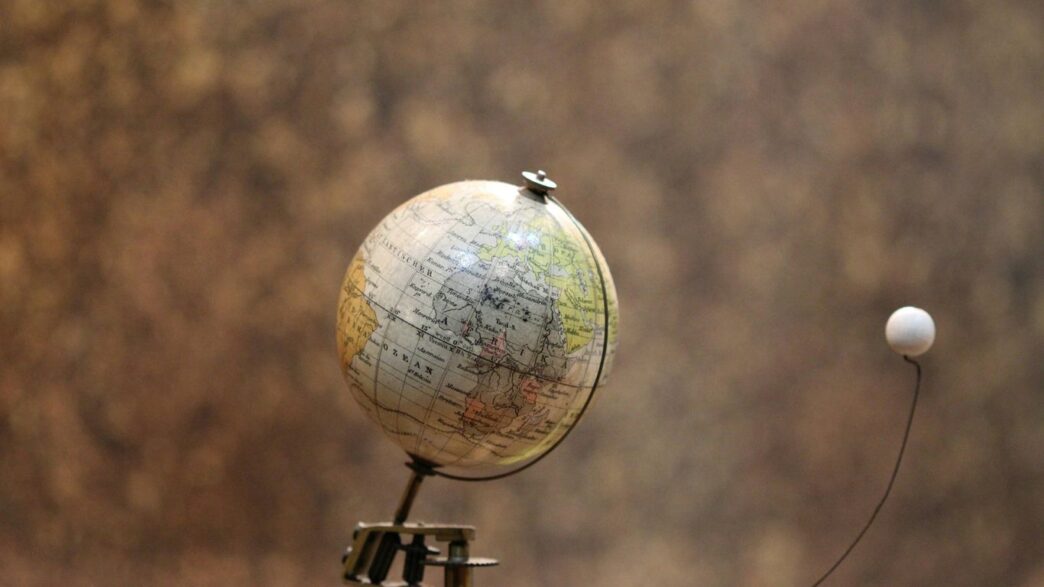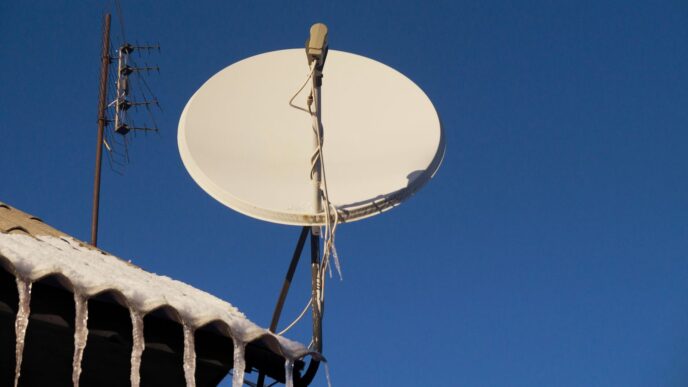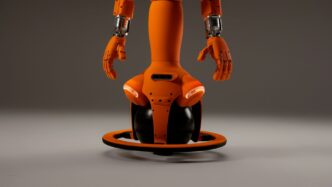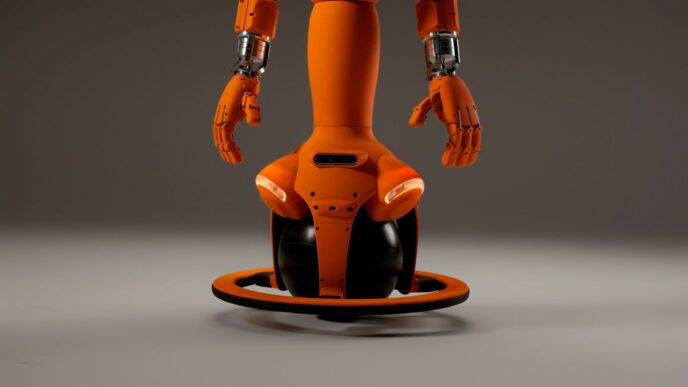The BeiDou Navigation Satellite System: A Global Leader
A World-Class Navigation Satellite System
So, BeiDou. It’s not just another satellite system; it’s really become a major player on the global stage. China put a lot of work into this, developing it all on their own. They focused on making sure the core tech was solid and that the system itself was set up in a smart way. Since BeiDou-3 officially started working, it’s been running smoothly, no major hiccups, and the services it provides are pretty top-notch. The satellites themselves, all 30 of the BeiDou-3 ones, are doing great. They’ve got millions of parts, all made in China, and they’re performing really well. Globally, it can pinpoint your location within about five meters, which is pretty good. And if you’re in the Asia-Pacific area, it’s even more accurate. Honestly, it’s hitting all its targets and then some.
Achieving Excellence Through Independent Innovation
This whole BeiDou project really shows off what China calls the "BeiDou Spirit." It’s all about doing things yourself, being open to others, working together, and just aiming to be the best. It’s a big example of the national spirit there, you know, patriotism mixed with trying new things. That independent innovation part? That’s the real secret sauce. Without constantly coming up with new ideas and doing it themselves from the start, they wouldn’t have this world-class system. And by being open and welcoming, they’ve stuck to their original idea: building BeiDou for China, but also for the rest of the world. Working together is how they’ve made it succeed. It’s a big advantage of their system – being able to pull everyone together for a common goal.
Global Service and Enhanced Capabilities
BeiDou isn’t just about telling you where you are; it does a lot more. It offers six specialized services that are pretty high quality. Think international search and rescue, sending short messages anywhere in the world, or even just in a specific region. It also has systems for improving accuracy and precise positioning. They’re really leading the way in some of these areas. China has gotten really good at running BeiDou, keeping it running smoothly 24/7. They update the satellites’ software, keep an eye on the whole system from around the globe, and share the latest info. Since it started, they’ve kept it running without problems and made it work even better. It’s like they’re on a path to keep making BeiDou better, more efficient, and cost-effective, which is pretty smart.
Evolution and Future of the BeiDou Navigation Satellite System
So, BeiDou-3 is up and running, which is a pretty big deal. But, you know, things don’t just stop there. China’s already thinking about what’s next, aiming to make the system even better. They’re talking about a "next generation" system, maybe called BeiDou-4, which sounds like it’ll be a step up from what we have now.
From BeiDou-3 to the Next Generation
Right now, the BeiDou-3 system has 45 satellites working together, a mix of the newer BeiDou-3 and some older BeiDou-2 ones that are still doing their job. They’ve managed to get the positioning accuracy down to about 5 meters globally, and even better, like 2 to 3 meters, in some spots. Timing is also super precise, hitting around 10 nanoseconds. But the plan is to keep improving. They’re looking at adding more satellites, maybe three to five more in the near future, to make sure everything stays super reliable. The next big step is to build a system that’s not just good, but truly world-class and constantly getting better. It’s all about making sure the system keeps running smoothly and performing well.
Integrating Emerging Technologies for Ubiquitous Intelligence
What’s really interesting is how they plan to mix BeiDou with other new tech. Think about combining it with mobile communications, those new low-Earth orbit satellites, and even traditional navigation systems that use gyroscopes. The idea is to create a system that’s everywhere and really smart. It’s not just about pinpointing your location anymore; it’s about creating a more connected and intelligent way to use space-time information. They want to pull in all sorts of new technologies and make them work together with BeiDou at the center. It’s a bit vague right now, but the goal is a system that’s more integrated and intelligent.
A Vision for an Integrated Space-Time System by 2035
Looking further ahead, the big goal is to have a fully built, integrated space-time system by 2035. This future system might include satellites in different orbits – high, medium, and low Earth orbits – all working together. They also want to make their high-precision positioning services, which are currently mostly for use within China, available globally. Imagine everyone being able to access positioning accuracy down to a few centimeters or even millimeters! It’s a pretty ambitious plan, aiming to provide safe and reliable space-time technology no matter where you are – underwater, indoors, in the air, or even in deep space. Basically, they want BeiDou to be a constant, reliable presence, providing time and location data anywhere, anytime.
Operational Status and Satellite Constellation
So, how’s the BeiDou system actually doing out there? It’s pretty impressive, really. The whole setup is designed to be super reliable, and they’ve put a lot of work into making sure it stays that way. The goal is to have the system available pretty much all the time.
BeiDou uses a mix of satellites in different orbits to cover the globe. You’ve got satellites in Medium Earth Orbit (MEO), which are about 21,150 km up, and then some in Geostationary Orbit (GEO) and Inclined Geosynchronous Orbit (IGSO) that stay put relative to the Earth or have a bit of an angle. This combination helps with global coverage and gives a real boost to accuracy, especially in the Asia-Pacific area.
Current Satellite Constellation and Performance
Right now, the BeiDou system has a total of 44 satellites. This is a pretty big number when you compare it to other systems. For instance, GPS has around 31, and Galileo has about 30. Having more satellites means better visibility and accuracy, especially in tricky spots. They’ve really focused on making the system work well, aiming for availability that’s way better than the standard 99%. They’ve managed to cut down the time the system might have slight accuracy issues from over 86 hours a year to less than 9 hours, and in practice, it’s pretty much always on.
Ensuring Stable Operation and Reliability
Keeping a system like this running smoothly is a huge task. The teams behind BeiDou are constantly monitoring everything. They have this approach where they try to find and fix problems before anyone even notices them. It’s like they’re always looking ahead, predicting what might go wrong with individual satellites or parts of the system and sorting it out. This proactive method means users generally don’t experience any downtime or accuracy dips. It’s a big deal for things like tracking your location or using it for wearable devices that rely on constant signals.
Plans for Backup Satellite Systems
While BeiDou has a large constellation, the idea of backup systems is always on the table for any critical infrastructure. Although not explicitly detailed in public plans, the sheer number of satellites and their orbital diversity naturally provides a level of redundancy. If one satellite has an issue, others can often pick up the slack. This built-in resilience is key to maintaining the high availability and dependability that users expect from a global navigation system.
Advanced Services and Applications
BeiDou isn’t just about telling you where you are; it offers some pretty neat extra features that make it stand out. Think of it as getting more bang for your buck.
High-Accuracy Positioning Services
So, BeiDou can get you to within a few centimeters of your target, which is seriously precise. This isn’t magic; it’s achieved through techniques like Precise Point Positioning (PPP). PPP uses data from a network of ground stations to figure out exact satellite positions and timing. It’s like having a super-accurate map that’s constantly updated. While it used to take a while to get this accuracy, new methods are speeding things up. This level of precision is a game-changer for things like surveying or even guiding complex machinery. It’s a big step up from just knowing you’re in the right city.
Short Message Communication Capabilities
This is one of BeiDou’s really unique features. Imagine you’re out in the middle of nowhere, no cell service at all, but you still need to send a quick message or your location. BeiDou can do that. It’s built into many phones now, giving you a sense of security knowing you can still connect. It’s like having a lifeline when you’re off the grid. This capability is already being adopted by some international phone brands, showing its growing importance. It’s a pretty cool way to stay in touch, even when traditional networks fail, and it’s a big deal for safety in remote areas. You can explore recent automotive technologies that offer similar peace of mind, like advanced backup cameras for safer maneuvering.
Diverse Applications Across Industries
BeiDou’s services are showing up everywhere. In agriculture, it helps farmers plant seeds and apply fertilizer with incredible accuracy, saving resources and boosting yields. Construction crews use it to guide heavy equipment, making sure projects are built right the first time. Even in everyday life, it’s improving navigation apps and location-based services. It’s also making waves in maritime and aviation safety, providing reliable positioning data for ships and planes. The system’s reliability is a key factor here; they’ve worked hard to make sure it’s always available, aiming for 100% uptime. They even have a motto: "spot problems before users do, identify signs of problems before they appear, and solve problems before they cause any impact." That kind of proactive approach really builds trust.
International Cooperation and Governance
Promoting Compatibility and Interoperability
BeiDou isn’t just about China; it’s about working with the rest of the world. The system is designed to play nicely with other global navigation satellite systems like GPS, GLONASS, and Galileo. This means users can often use signals from multiple systems at once, which can lead to better accuracy and reliability, especially in tricky spots like urban canyons or mountainous terrain. Think of it like having multiple maps to find your way – the more you have, the better your chances of getting there smoothly. China has signed agreements to make sure BeiDou and systems like GPS can work together, and they’re talking with others too, like Galileo, about how to coordinate frequencies. This effort to make systems compatible helps everyone by providing more consistent and dependable positioning information globally.
Expanding Bilateral and Multilateral Partnerships
China has been busy building relationships around the globe for BeiDou. They’ve set up special cooperation channels with major navigation systems and have been actively involved in forums and meetings related to satellite navigation. This includes working with countries along the Belt and Road initiative, holding forums with Arab states, Central Asian countries, and African nations. These meetings aren’t just for show; they result in action plans and discussions about how to actually use satellite navigation, including BeiDou, in practical ways. They’ve also been involved with regional groups like the Arab League and ASEAN. It’s all about sharing knowledge, training people, and figuring out joint applications. Plus, BeiDou products are already being used in many countries, showing a real-world demand and acceptance.
Contributing to Global Standards and Governance
BeiDou is also stepping up its involvement in international organizations that set the rules for satellite navigation. China has been a member of the International Committee on Global Navigation Satellite Systems (ICG) since the beginning, contributing to discussions and work there. They’re also pushing for BeiDou to be recognized in international standards for things like aviation, maritime use, mobile communications, and even search and rescue. This means getting BeiDou’s unique features, like its two-way distress signaling, included in the official guidelines that industries worldwide follow. By participating in these global discussions and aiming for standard inclusion, BeiDou is helping to shape the future of navigation for everyone.
BeiDou’s Unique Contributions to Global Navigation
Two-Way Distress Signaling for Search and Rescue
When you’re in trouble out at sea, getting help is the main thing. BeiDou has really stepped up here with a feature that makes a big difference. Before, when someone sent out a distress signal, they had no idea if anyone actually got the message. It was a one-way street, and that uncertainty must have been awful. BeiDou introduced a two-way signaling system. This means when you send out that SOS, you get a confirmation back that your message was received and help is on the way. This simple confirmation provides immense psychological relief to those in distress. It’s a pretty big deal for maritime safety and international search and rescue efforts.
Integration into Mobile Communication Standards
It’s not just about ships and planes anymore. BeiDou is showing up in the devices we use every day. The system has been integrated into the 3GPP standards, which is the group that sets the rules for mobile communications. What does this mean for us? It means that most of the smartphones out there today already have BeiDou built-in. So, whether you’re using your phone for maps, messaging, or anything else that needs location, you’re likely benefiting from BeiDou’s accuracy without even realizing it. It’s a quiet integration that makes global navigation more accessible.
Enhancing International Civil Aviation and Maritime Safety
BeiDou is also making waves in the world of aviation and shipping. The system has met all the requirements set by the International Civil Aviation Organization (ICAO). This is a major step that allows BeiDou to be used more widely in international flights. Think about it: more accurate navigation for planes means safer journeys. Similarly, in maritime operations, BeiDou is being recognized and adopted. By working with international bodies like the International Maritime Organization, BeiDou is contributing to smoother, safer travel across the skies and seas. It’s all about making global transport more reliable.
Looking Ahead
So, where does that leave us with BeiDou? It’s clear China isn’t just resting on its laurels. They’ve got big plans to keep making the system even better, aiming for something more integrated and smarter. Think about a future where this technology is everywhere, helping out in all sorts of ways, from your phone to maybe even deeper space stuff. They’re also working with other countries and making sure their system plays nice with others, which is pretty important for global tech. It’s a system that’s already proven itself, and it looks like it’s only going to get more capable and widespread. It’s definitely one to keep an eye on as it continues to grow and find new uses around the world.










